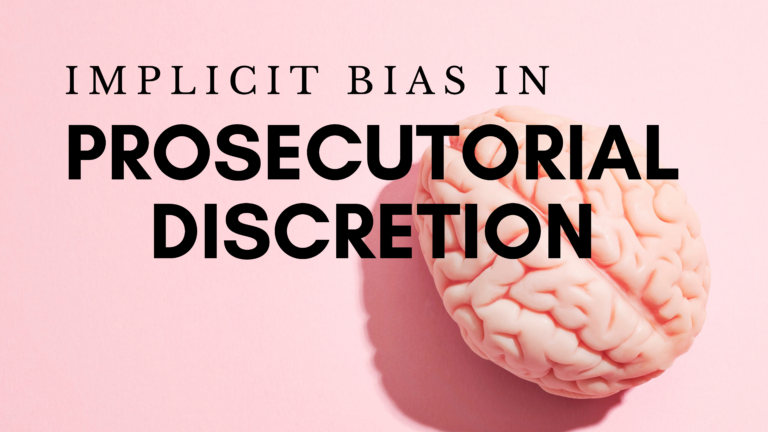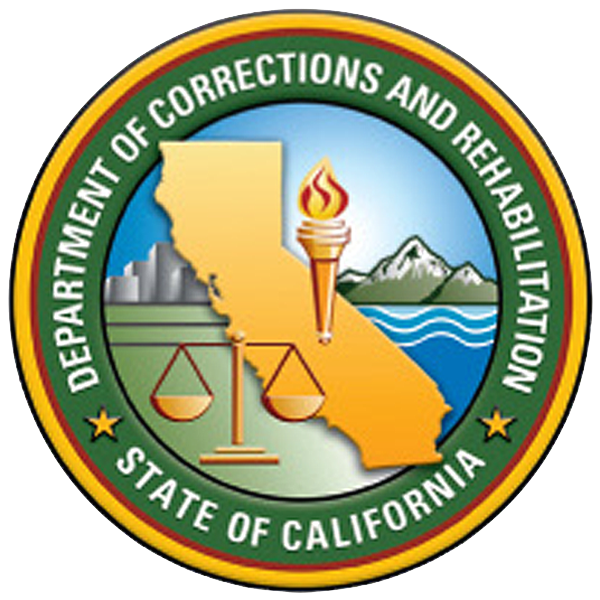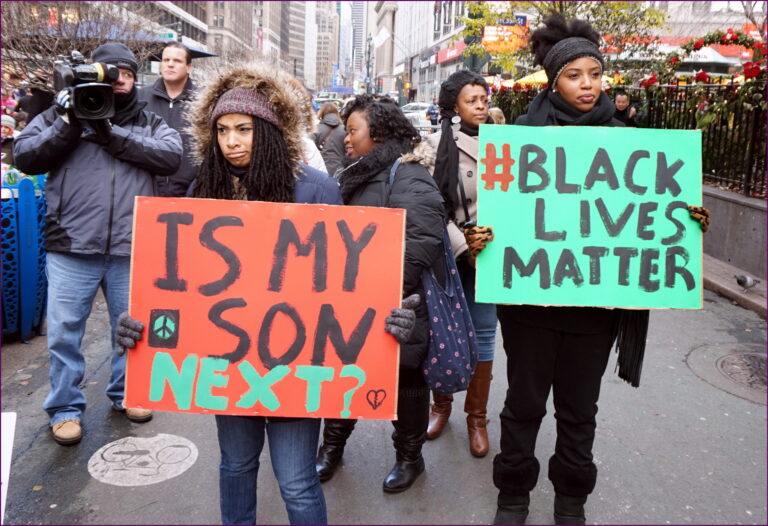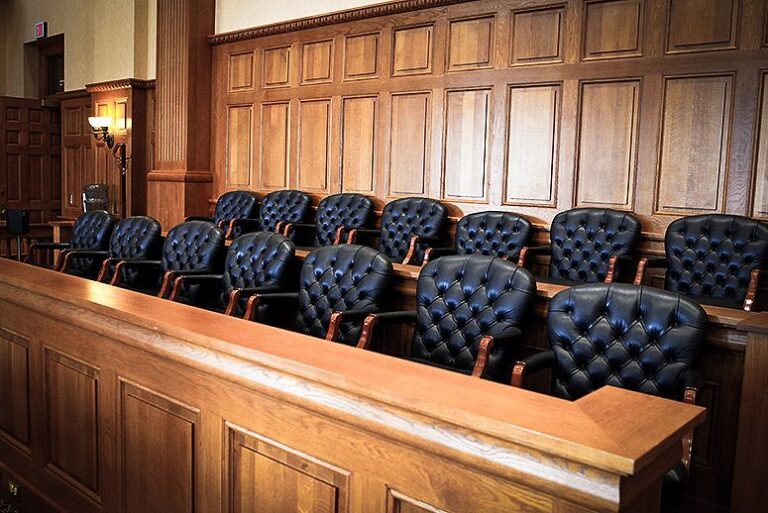All content tagged with: Law Enforcement
Filter
Post List
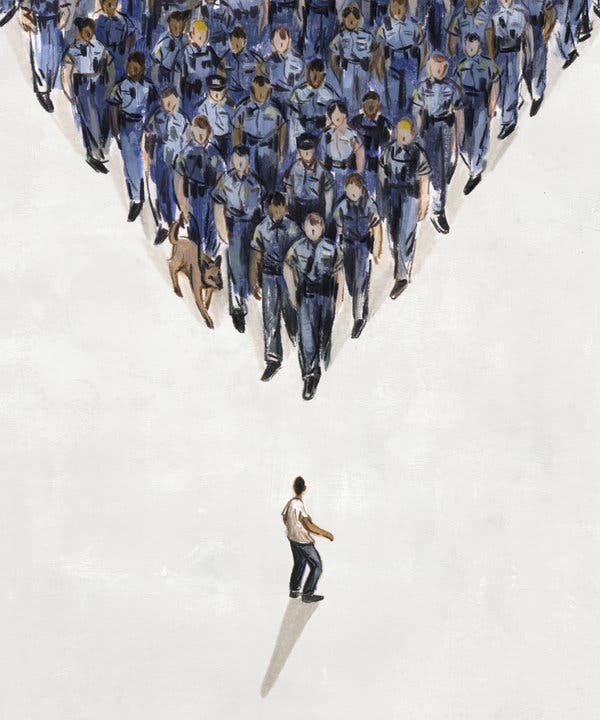
White Liberals – Stop Demanding More Police, It Won’t Help
By Clara ButlerAssociate Editor, Vol. 26 After a national tragedy, within the thoughts and prayers usually offered to the affected community is a deep thread of pro-carceral sentiment. This response to instances of hate crimes and “domestic terrorism” is increasingly concerning, especially as most of the response comes from…
Implicit Bias Exposed: the Michigan Juvenile Justice System
By Lexi WungAssociate Editor, Vol. 26 I joined the Juvenile Justice Clinic as a student attorney during my fourth semester of law school. Immediately I dove into the intricacies of the juvenile justice system in Michigan, my client’s individual cases, and the realities of converting law school doctrinal classes into…“Professional” Hairstyles: How Title VII Protections Have Condoned the Policing of Black Women’s Hair
By Jasmine BenjaminAssociate Editor, Vol. 26 Everyone is faced with the question of how to style their hair. However, this decision is of particular social, professional and economic import for Black women. According to recent studies, Black women are 83% more likely to report being judged more harshly on their…
Undermining the Prosecutor
By: Thomas DesoutterAssociate Editor, Vol. 26 The most famous sheriff in U.S. history is Bull Connor, the Alabama lawman who turned fire hoses on peaceful civil rights protesters in defense of white supremacy. No prosecutor is quite so recognizable by name, but many a District Attorney is infamous…Man’s Best Friend? How Dogs Have Been Used to Oppress African Americans
The use of dogs as tools of oppression against African Americans has its roots in slavery and persists today in everyday life and police interactions. Due to such harmful practices, African Americans are not only disproportionately terrorized by officers with dogs, but they are also subject to instances of misplaced sympathy, illsuited laws, and social exclusion in their communities. Whether extreme and violent or subtle and pervasive, the use of dogs in oppressive acts is a critical layer of racial bias in the United States that has consistently built injustices that impede social and legal progress. By recognizing this pattern and committing to an intentional effort to end the devaluation of African Americans, the United States can begin to address the trailing pawprints of its racial inequities.
Criminal Justice Reform: Has California Done Enough?
by Amanda Stephens Associate Editor, Vol. 25 2.2 million people are incarcerated in the United States.[1] Of those millions of people, 67% of those individuals are people of color.[2] This fact is not new. Scholars and activists over the last decade have worked tirelessly to…
Hands Up, Don’t Shoot: Keeping Police Brutality in Check
By Sophie Karpf Associate Editor, Vol. 25 As of November 2, 2019, the police have shot and killed 752 people this year.[1] While that number represents nearly 90 fewer shootings than there were at this time last year, there has not been an appreciable drop in…
Juries So White: Why the All-White Jury is Still so Prevalent in Michigan
By Christopher Hemry Executive Editor, Vol. 24 Michigan courts are insidiously tedious in the way they secure all-white juries.[1]For serious cases, more than 60 potential jurors are brought to the court, and then 14 are randomly selected to sit in the jury box.[2] From there, they are subjected, one by one, to a litany of questions about their jobs, their families, and their attitudes about crime and law enforcement.[3] By the third juror, the questioning is monotonous almost to the point of becoming white noise. It’s little wonder, then, that when the juror of color with a slight accent is offered an opportunity to leave — by the judge, no less — they jump at the chance. One Michigan judge is so adept at detecting jurors who “may have trouble understanding trial proceedings,” that he knows as soon as they open their mouths. Despite their previous sworn statement that they understand English[4] he has them identified and excused for cause within 3 sentences.[5] Other disparities sneak in as the questions drone on for 30-40 more jurors. The black juror isn’t asked for clarification when he says that jury duty would be a burden.[6] The white juror has to define his financial situation and swear that he wouldn’t be able to make rent.[7] The white juror with an uncle and brother-in-law in law enforcement who said that she’s inclined to believe police over civilians is deemed impartial after she’s pressed into saying she thinks she could set aside her personal feelings and view the evidence fairly. But the black juror whose cousin six states away had a bad experience with police is dismissed for cause. The end result is often an all-white jury.
Is Gang Membership a Crime? How RICO Laws Turn Groups into Gangs
By Kerry Martin Associate Editor, Vol. 24 On June 18, 2018, in a courtroom at the Theodore Levin U.S. Courthouse in downtown Detroit, at the end of a long pretrial argument on a matter of evidence, defendant Corey Bailey stood up. The courtroom was nearly full: this was preparation…White Caller Crime: Racialized Police Communication and Existing While Black
Over the past year, reports to the police about Black persons engaged in innocuous behaviors have bombarded the American consciousness. What do we make of them? And, equally important, what are the consequences of such reports? This Article is the first to argue that the recent spike in calls to the police against Black persons who are simply existing must be understood as a systematic phenomenon which it dubs racialized police communication. The label captures two related practices. First, racially motivated police reporting—calls, complaints, or reports made when Black persons are engaged in behavior that would not have been read as suspicious, or otherwise worthy of police involvement had they been White. Second, racially weaponized police reporting—calls, complaints, or reports made against Blacks in an effort to capitalize on law enforcement mistreatment of Black persons, or harm the victim because of their race.
